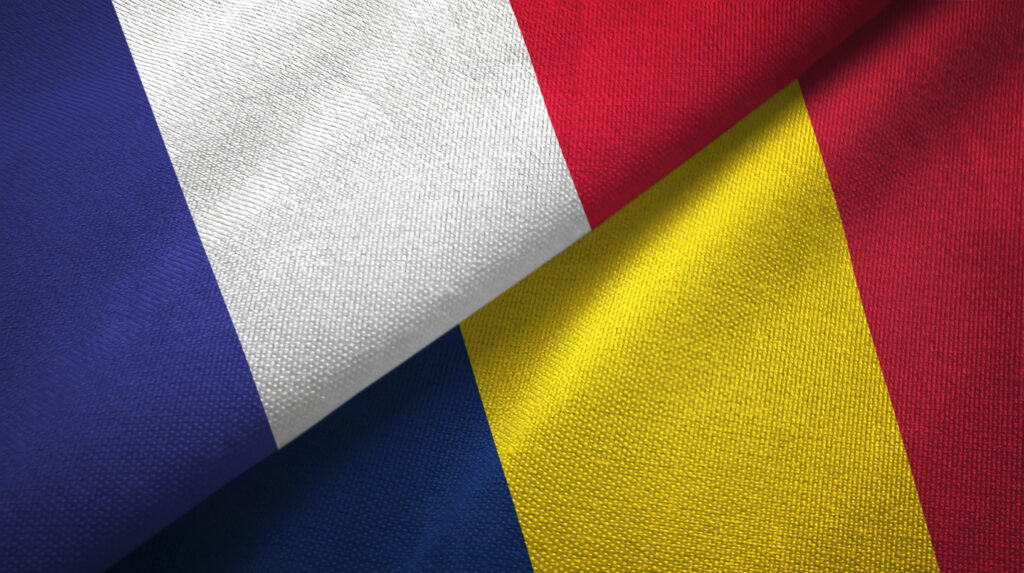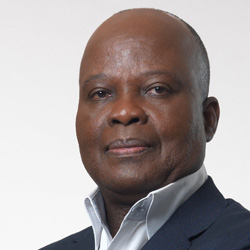Interviews / Africa/s
3 December 2024
“End of Military Agreements Between France and Chad: Factors and Stakes of a Breakup”

After a 2010s decade marked by France’s significant military presence in West Africa, particularly through Operations Serval and Barkhane, the 2020s appear to herald an inexorable decline in its influence on the continent. A series of coups d’état in Mali (2021), Burkina Faso (2022), and Niger (2023) led to a profound rupture between these Sahelian states and Paris. On November 28th, the announcement by N’Djamena of the termination of the defence agreements between France and Chad—just hours after the visit of the French Minister of Foreign Affairs—further reinforced this trend.
In what context does Chad’s decision arise? Why has the country made this choice? What might be the consequences? And what does the future hold for French influence in Africa? Insights from Francis Laloupo, Associate Researcher at IRIS and a specialist in African geopolitics.
What is the history of defence and security relations between France and Chad?
After the agreement signed in 1976 and revised in 2019, this cooperation was marked by specific operations. Among the most emblematic was Operation Manta, launched in the early 1980s to counter Libya’s territorial ambitions while ensuring the protection of the Chadian regime against internal threats. Presented as a contributor to Chad’s “stabilisation,” the French army was often seen as a supporter of the ruling regime, reluctant to promote democratic progress.
The implementation of Operation Épervier, from 1986 to 2014, allowed for the sustained presence of French forces through the establishment of military bases. This arrangement, built on a so-called privileged relationship with successive regimes, positioned Chad as a key pillar of France’s security policy and a historic strategic stronghold of French influence in sub-Saharan Africa. Within the framework of this strengthened cooperation, Chadian contingents were deployed to Mali in support of Operation Serval in 2013, to combat armed terrorist groups (GAT). Subsequently, Chad hosted the operational headquarters of Operation Barkhane. While Paris was actively consolidating its military presence in the region, the Chadian army gained a stellar reputation in the fight against jihadist groups.
How can Chad’s announcement of terminating defence cooperation agreements with France be understood?
First, it should be noted that this is not the first time the French military presence in Chad has been questioned. Since 1975, political figures, both from the ruling class and the opposition, have periodically demanded the departure of French forces.
Three days after the statement issued on 28 November by the Ministry of Foreign Affairs, the Head of State, Mahamat Déby Itno, provided an explanation of the text, clarifying that the announced termination “only concerns the military cooperation agreement in its current configuration.” He emphasised the obsolescence of an agreement ill-suited to contemporary security, geopolitical, and strategic realities, as well as to Chad’s full expression of sovereignty.
For now, unlike the Sahel Alliance countries (Mali, Niger, Burkina Faso) that have adopted a confrontational stance toward France, Chad has indicated that its decision does not signify a rupture with its historical partnership with France. The end of security cooperation, in its current form, is expected to be organised in a gradual and concerted manner.
In what domestic and regional context does Chad’s position arise?
This decision must be situated within the political changes underway since the death of President Idriss Déby Itno in 2021. With his son Mahamat Déby Itno taking power, the new executive must navigate various political factions and public opinion to establish legitimacy. The challenge is to ensure continuity while signalling reforms that demonstrate a new form of governance.
In this regard, the security question remains central in Chad, a country that has experienced decades of political and military conflicts and is now facing the challenge of armed terrorist groups. Chad’s gesture toward France is based on two arguments: a reassessment of the foundations and relevance of military agreements marked by colonial history and a declared ambition to diversify its partnerships.
Since 2022, the Chadian government has been working to establish closer ties with new “strategic” partners, such as Russia, Turkey, the UAE, and Hungary. Behind this decision are political upheavals and shifting diplomatic alliances in the Sahel and more broadly in West Africa.
What are the factors that contributed to these changes?
One can point to the erosion of France’s military influence strategy in the Sahel in recent years, public pressure against the continued presence of French military bases seen as neo-colonial symbols, efforts by African states to diversify partnerships, intensifying rivalries between major powers, Russia’s push into the continent, and the impact of Moscow’s information warfare in francophone sub-Saharan countries.
Could France have anticipated Chad’s decision?
After the forced withdrawal of Operation Barkhane from the Sahel in 2022, France announced a reconfiguration or resizing of its military presence, particularly in West and Central Africa. In June 2024, it announced a drastic reduction of personnel in all affected countries.
However, Paris appears to have been caught off guard by Chad’s somewhat dramatic move. This reflects, in part, the shifts in power dynamics within France’s former sphere of influence, where it no longer controls the agenda. Chad’s decision is emblematic of the end of an era for French external operations (OPEX) on the continent.
What impact could the French withdrawal have for Chad within a region marked by instability and conflict?
While Chad can rely on the expertise of its defence forces to address security threats, its authorities recognise that combating non-state armed groups cannot be done in isolation. In the short to medium term, this decision is unlikely to significantly alter the country’s management of security challenges at home and in the region.
Future cooperation will depend on how Chad redefines its military partnerships. Possible options include a reconfiguration of cooperation with France based on technical or logistical support or strategic partnerships focused on specific areas. This could be accompanied by greater engagement with new partners such as Russia and Turkey.
However, such an arrangement does not necessarily ensure operational or diplomatic compatibility between the external actors involved.
To what extent could France’s strategic rivals, starting with Russia, benefit from this new situation?
It will be crucial to understand the terms of the rapprochement observed in recent months between Chadian and Russian authorities. Could Chad follow the example of the Sahel Alliance countries, which have embraced Russian assistance?
President Mahamat Déby Itno has stressed that “Chad is not in a logic of replacing one power with another, much less in an approach of changing masters.” While France’s withdrawal could represent a political gain for Russia in the region, Chad’s internal dynamics differ in many ways from those of its Sahelian neighbours.
Moreover, relying exclusively on Russia’s assistance is unlikely to provide the solutions required for Chad’s internal challenges. Regarding security, the experience of Sahel Alliance countries shows that exclusive cooperation with Russia has failed to produce the desired outcomes. Instead, there has been a worsening of terrorist threats and violence.
As Senegal also announces its intention for French troops to leave, what role can France still play in Africa?
It is important to note the specific context of Senegal. The question of closing French military bases and withdrawing troops has been raised before, notably by President Abdoulaye Wade during his two terms between 2000 and 2012.
The current government, in power since April 2024, has reformulated this demand as part of a nationalist and sovereignty-driven ideology that underpins its electoral promises.
For France to maintain influence, it will need to adopt diplomatic strategies better aligned with the aspirations of its African partners, nearly seven decades after independence. This may be the key to retaining a role in an increasingly competitive African geopolitical landscape.

